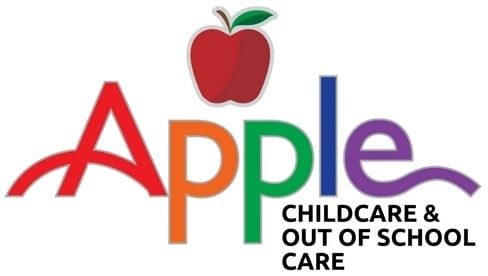Protecting the health and safety of the children in our care is one of our most important responsibilities. Effective supervision reduces the risk of harm to children by preventing injuries and accidents. It also promotes positive, responsive, and intentional learning environments for children and child care workers. With effective supervision in place, children can play safely and have the benefits of play with their peers that is crucial to their developmental needs.
Apple Child Care is committed to providing effective supervision that meets the developmental needs of the children at all times to protect their health, safety and well-being. At minimum, Child Care Licensing regulations for adult/child ratios must be maintained at all times and will never be exceeded. Where seven or more children are present at the program, whether on or off the program premises, a minimum of two adult staff members, one of whom is a primary staff member are on duty, and, children are at all times, under supervision that is adequate to ensure their safety, well-being and development.
Children will not be left unsupervised at any time of the day. The indoor and outdoor environments are set up in a way that enables the staff to see the children in all parts of the play areas. Child care staff will communicate with each other, so they will always know the whereabouts of every child.
Supervision practices will be observed and assessed on a regular basis by the Director to ensure that they continue to promote safety and to meet the needs of children enrolled in the program. When supervision or safety concerns are identified, changes will be implemented promptly to reduce the risk of harm.
The Director is responsible for ensuring the caregivers understand their roles and responsibilities when supervising children. The staff will be trained and monitored to promote consistent implementation of the Supervision Policy and Procedures.
Parents are informed of the Supervision Policy when they register their children as a part of the orientation process. The policy is included in the Parent Handbook and in the Apple Child Care Policy & Procedures Manual which is located in the office and staff room for easy access by staff and parents. Parents whose children are transported will receive a copy of the Transportation Policy.
School Age Children
A school age child may periodically leave the OSC room for a specific purpose within the centre. An example would be to read to younger children, in which case the child is still under supervision of the Apple Child Care staff.
Missing Child Procedures: Child Does Not Arrive as Expected after School
If a child does not show up after school when expected, Apple Child Care staff will attempt to locate the child. The following procedure will be followed.
- The staff picking up the child will inquire with the school as to the whereabouts of the missing child. If the child’s absence is verified, the staff leave the school. If theabsence is not verified, the staff will call the parent/guardian. If the parent cannot verify the absence, the staff will inform the Director and the staff & children will proceed to the centre.
- The Director will call the parent/guardian. The parent will be asked to go to the school. If the parent/guardian cannot be reached, emergency contacts will be contacted.
- The Director will go to the school and work together with the school and parents to attempt to locate the child.
If a child cannot be located and there is no explanation for his/her absence, the police will be notified. Licensing will be contacted immediately, and a critical incident report will be filed using the prescribed form. (See the Incident Reporting Policy)
Thank you for choosing Apple Childcare Centre as a second home for your child! Our promise to you is that we will work in partnership with you to nurture and care for your child to help your child reach his/her potential, but most of all, we want your child to enjoy his/time at the centre. Your trust and daily communication gives us the confidence to work effectively as a team to work effectively.
We look forward to getting to know you and your family!

Apple Childcare
Parent Acknowledgement to Comply with Policies

The Parent Handbook has been created to help you understand our policies and practices. The handbook is intended to guide our practices and is not intended to cover every situation that may arise at the centre. It is important that you read this entire handbook before your child attends the centre. We reserve the right to make changes at any time to our policies and procedures. Parents will be notified of any changes that affect them. The Parent Handbook is reviewed annually and updated as required. Your participation in the review & updating of our policies and procedures is appreciated as your efforts help us in efficiently running the formal aspects of the centre.
After you finish reading the Parent Handbook, please return the sign this page and give it to the Director, prior to or on your child’s first day of attendance.
By signing below, you acknowledge that you have read and understood the policies outlined in the Apple Childcare & OSC Parent Handbook and agree to comply with the policies.
Please speak with the Director to clarify any questions you may have about our policies.
Your feedback on our policies is welcomed!
Child Name _________________________ Parent Name _________________________
Parent Signature ________________________________ Date _________________
Comments: _______________________________________________________________
_________________________________________________________________________
____________________________________________________________________________________


